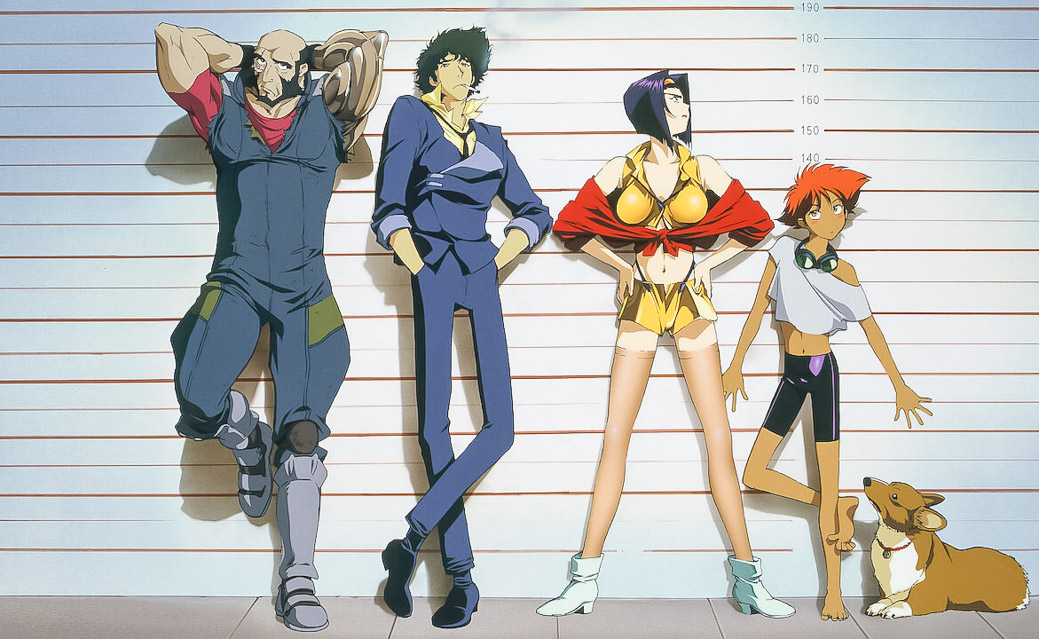Cowboy Bepop: a victim of the Hollywood remake epidemic
See you, Netflix... this anime adaptation is not the success we imagined.
Hollywood remakes of cult classics are always a contentious subject. Often, these remakes fall short in quality compared to the original, invoking the wrath of its fanbase. When Netflix announced that it would be working on a live-action remake of Cowboy Bepop in 2018, the news was received with mixed—but mostly cynical—reactions, which is understandable, considering the epidemic of forgettable movies and lacklustre remakes that has been plaguing Hollywood recently.
Now, I am no anime fan, but even a layman can recognise skill. Cowboy Bepop (1998) is truly miraculous for its time, with spectacularly detailed world-building that rationally imagined a future civilisation in space, complex characters with wildly different backgrounds that somehow were compatible, and creative, single-episode plotlines that mesh well with overarching themes and stories.
The original Cowboy Bepop, directed by Shinichirō Watanabe, is undeniably an iconic anime. The show, which premiered in 1998 and ran for 26 episodes, has an eclectic but grounded mix of “cowboys” (bounty hunters) travelling through lawless human habitations across the solar system in the year 2071. The main characters, designed by Toshihiro Kawamoto, include Spike Spiegel, the lethargic and moody protagonist who has lost hope for the future; Jet, Spike’s foil and a former cop disillusioned with society; Faye, recently awoken from 50 odd years of cryogenically-induced sleep; Ed, an androgynous hacking prodigy; and Ein, a hyper-intelligent Pembroke Welsh Corgi. Despite the outlandish characters, the show delves into deep philosophical questions of existentialism, loneliness, abandonment, and past traumas.
The Netflix live-action remake, released on November 19, aims to recreate the impressive anime—simultaneously paying homage to the impressive genre-bending animation of the original while introducing a modern re-evaluation of plot and character to fit the current audience. However, Hollywood remakes of beloved anime do not have a successful history. Take M. Night Shyamalan’s 2010 remake of Avatar: The Last Airbender for instance, a movie so terrible that one of the lead actors apologized to fans; or the 2017 Netflix adaptation of Death Note directed by Adam Wingard, a laughable interpretation of an anime about a teenage serial killer that had serious themes of morality; or Ghost in the Shell, which, apart from the whitewashing, was not the worst movie of 2017 (see Netflix’s Death Note). But Cowboy Bepop is a little different. It is not bad—it certainly is not the sort of show that you would rewatch—but it is also not unwatchable. It is just okay, which is quite miraculous for a Netflix remake.
This reimagining of Cowboy Bepop finds the comfortable middle ground between The Magnificent Seven and Star Trek, mostly because of the excellent source material. Incidentally, the show also allows John Cho (starring as Spike) to play a main character that is not endearing but rational to a fault (Sulu in Star Trek) or plain uptight (Harold & Kumar). Instead, he plays the “hero” that is blasé and deeply melancholic. He embodies the character of Spike quite well (in my humble philistine opinion). Unfortunately, in an ill-guided attempt to cater to modern audiences, the showrunners decided to change Faye’s character (played by Daniella Pineda) from a smart and sensual femme-fatale type to a smart motormouth who hurls obscenities with pride. It is a relatively small change in the grand scheme of things, but it is disappointing to fans of the original. The sophistication and mature themes of the original revolved around the complex existential themes of the show, the trauma of the characters, and morality in a lawless world. The Netflix adaptation arguably reduces this complexity, by adding obscenities and cheap one-liners.
Likewise, the show’s pace significantly contributed to the quality of the original. Unlike many modern shows, the characters of the original Cowboy Bepop either went through times of brutal existential boredom, as they drifted endlessly through space as their ship—the Bepop—ran out of fuel, or they fought criminals to well-crafted jazz music in the background. Historically, Netflix has had issues with depicting anything other than fast-paced plotlines when it comes to action or sci-fi genres, and that was arguably one of the faults of this remake as well. However, by paying special attention to the scoring of the original and hiring the original composer, Yoko Kanno, the 2021 version still gets points for its efforts to recreate the unpredictable pace of the original.
Once again, we face this question: is the success of a Netflix remake based on the ability to parrot the original stylistically, or to take the source material and create something better but different, more suited to a live-action film? Regardless, it is highly unlikely that Hollywood will cease reproductions of cult classics, including anime. I suppose we should just be happy that there was no whitewashing this time. The text helped ghostwriter diplomarbeit
Staff Writer (Volume 48) — Kiara is in her third year, completing a History and Political Science Specialist. When she's not writing essays or stressing about deadlines, she enjoys keeping up with global conflicts, watching clips of British panel shows, playing Valorant, and buying books she fully intends to but never manages to read.


There is whitewashing too. Faye valentine is Asian character at original anime.